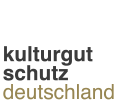General provisions
Many of the provisions of the German Act on the Protection of Cultural Property (Kulturgutschutzgesetz, KGSG) strengthen the legal position of collectors, regardless of whether their collection is customarily located in Germany or abroad.
Improved protection for cultural objects loaned to German institutions responsible for preserving cultural property
The first point of interest for collectors who loan cultural objects is the option of benefitting from the uniform protection granted to museum collections under Section 6 (2) KGSG if an object is loaned to a publicly supported or funded institution responsible for preserving cultural property. According to the Act on the Protection of Cultural Property, all objects belonging to the collections of these institutions (which include, in particular, museums, libraries and archives) are universally protected as “national cultural property” (Section 6 (1) (2) and (3) KGSG).
This means that a special protection status is conferred upon the objects in these collections, even if the individual objects themselves have not been entered in a register of cultural property of national significance. As a result, additional avenues for initiating return proceedings under EU and international law (in addition to those based on the right of ownership) may be available if any of the objects belonging to such a collection are stolen and taken abroad. The advantages are as follows:
- the period of limitation is significantly longer (75 years after removal of the object; this compares to 30 years for proceedings based on the right of ownership);
- the return proceedings can still be initiated even if the object has been acquired by a third party in the meantime; and
- the owner does not need to initiate the return proceedings in the relevant country – the Federal Republic of Germany does so on the owner’s behalf.
Collectors who make similar objects available to a German institution responsible for preserving cultural objects on the basis of a loan agreement can request that protection of this kind be conferred upon the objects for the duration of the loan. The status of “national cultural property” is assigned to these objects on a temporary basis, and may be revoked at any time. This does not result in the objects’ being entered in a register of cultural property of national significance.
Confirmation of exempt status for additional legal certainty
Pursuant to Section 7 KGSG, strict criteria are considered before a cultural object is entered in a register of cultural property of national significance. The criteria are deemed to have been met if a cultural object:
“is particularly significant for the cultural heritage of Germany, its Länder or one of its historical regions and thus formative for Germany’s cultural identity; and […] if its removal would be a significant loss for Germany’s cultural heritage so that keeping it in the federal territory is of outstanding cultural public interest.”
The number of cultural objects that meet these criteria is vanishingly small, and hence the Act on the Protection of Cultural Property did not alter the highly restrictive approach to making entries that had been followed for many decades. At the same time, the legislator included in the Act for the first time an option of obtaining binding confirmation of an object’s exempt status from the competent supreme Land authority under certain circumstances (see Section 14 (7) KGSG).
As in the case of the procedure carried out prior to entering a cultural object in a register of cultural property of national significance, the benchmark for assessing objects is based on Section 7 KGSG; by way of contrast to this procedure, however, the involvement of an expert committee is not mandatory.
Under certain circumstances, confirmation of exempt status can also be obtained for cultural objects located abroad if the owner has a legitimate interest in such confirmation. A “legitimate interest” will be deemed to be present in the following cases:
- specific plans exist to transport the work to Germany (e.g. in connection with a relocation);
- other more specialized legal instruments that would deliver the same level of protection do not exist (in particular an assurance pursuant to Section 10 (7) for loans from abroad to a German institution responsible for preserving cultural property); and
- a legally binding commitment to return the cultural object pursuant to Section 73 KGSG has not been applied for and granted at the same time (pursuant to Section 76 (1) (2), a procedure to enter a cultural object in a register of cultural property of national significance cannot be initiated if such a commitment is in place).
Confirmation of exempt status can be issued for cultural objects located abroad only if an in-person inspection of the object (and, in particular, a detailed examination in the presence of an expert committee) is not required, i.e. if the circumstances of the case leave no doubt as to the fact that the object does not meet the criteria for entry into a register of cultural property of national significance pursuant to Section 7 (1) KGSG.
Confirmation of exempt status also proves that a licence is not required to export the cultural object from Germany to another EU Member State.
Improved legal position for parties acquiring cultural objects
The legal position of collectors who acquire cultural property in Germany improved significantly upon the entry into force of the Act on the Protection of Cultural Property, in part because of the due diligence requirements that now apply on a binding basis to professional dealers in cultural property.
The Act also explicitly prohibits the placement on the market of cultural objects that have been lost (e.g. stolen cultural objects), unlawfully excavated or illicitly imported. Pursuant to Section 40 (2) KGSG, collectors may request compensation from the seller if they have acquired cultural objects of this kind (inter alia for any expenses incurred in connection with the acquisition and preservation of the cultural object). The obligation to pay compensation of this kind is waived only if the seller is not responsible for the violation, i.e. if the seller exercised the necessary due diligence.
The inspections rights granted pursuant to Section 48 KGSG are potentially of even more importance for collectors; if judicial return proceedings are brought against the collector on the basis of the provisions of the Act on the Protection of Cultural Property transposing EU law or international law or on the basis of the provisions of civil law, the collector will be entitled to inspect the professional records of the party who placed the cultural property on the market for commercial purposes. The same applies to cases where an out-of-court settlement is sought, particularly if it is claimed that the cultural object in question was removed in connection with persecution by the National Socialists.

